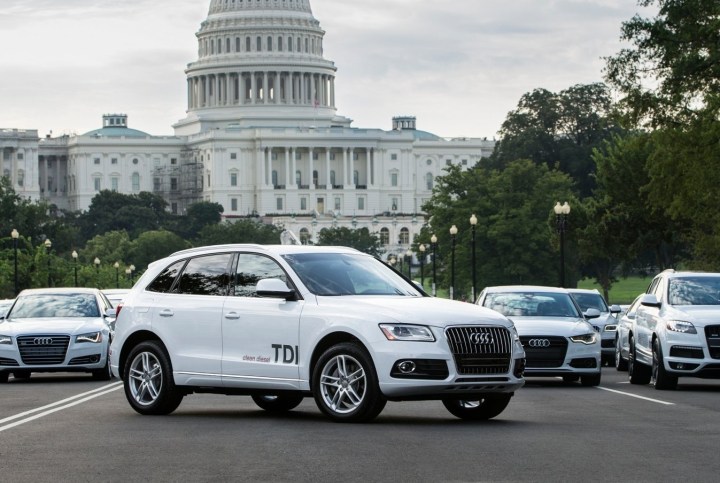
The defeat device is fitted to cars built between the 2009 and 2016 model years, according to the Environmental Protection Agency (EPA) and the California Air Resources Board (CARB). On our shores, the 3.0-liter V6 TDI is primarily found under the hood of Audi models such as the A6, the A7, both the short- and long-wheelbase variants of the range-topping A8, the Q5 (pictured), and the Q7. It also powers the Porsche Cayenne and Volkswagen’s Touareg off-roader.
While the alternative exhaust control device fitted to the 3.0-liter TDI violates U.S. law, Audi — whose ad slogan is, ironically, “This is Truth in Engineering” — points out that it’s legal in Europe but executives failed to properly notify regulators of its existence. The company also stresses that the six-cylinder TDI isn’t fitted with the same defeat device as the smaller 2.0-liter TDI that powers nearly half a million cars in the U.S. including Volkswagen’s Golf and Jetta and the Audi A3.
The announcement is surprising because the Wolfsburg-based car maker flatly denied the EPA’s allegations earlier this month.
“Volkswagen AG wishes to emphasize that no software has been installed in the 3.0-liter V6 diesel power units to alter emissions characteristics in a forbidden manner,” explained Volkswagen in a statement published on November 2nd.
Volkswagen, Audi, and Porsche have issued stop-sale orders that apply to the aforementioned models equipped with the 3.0-liter TDI engine, and representatives from all three companies are cooperating with federal authorities. A tentative fix for the non-compliant 2.0-liter TDI was presented to regulators on Friday, but what it consists of hasn’t been made public yet.
The EPA is allowed to fine the Volkswagen Group up to $37,500 per offending vehicle, meaning the Dieselgate scandal could cost $21 billion in penalties alone.



